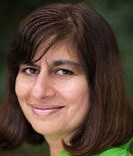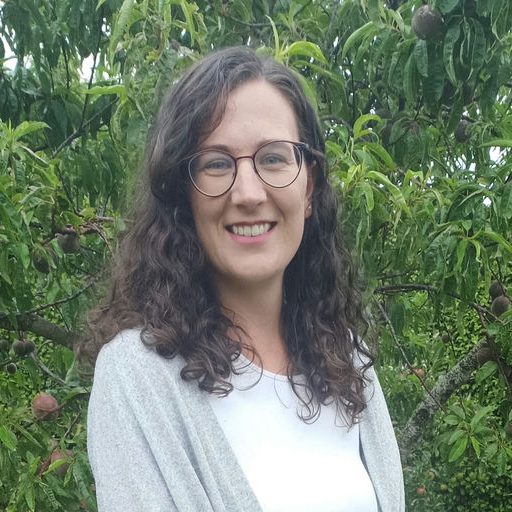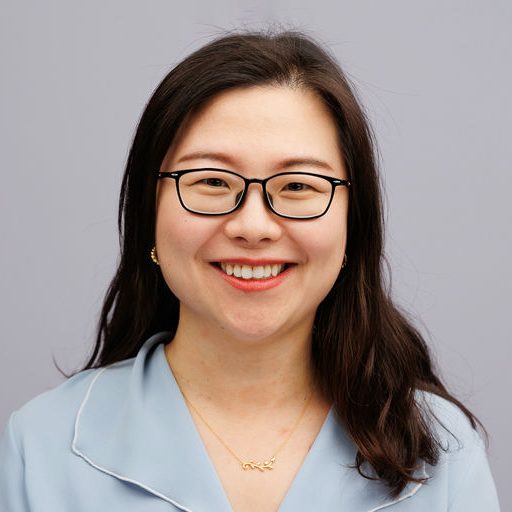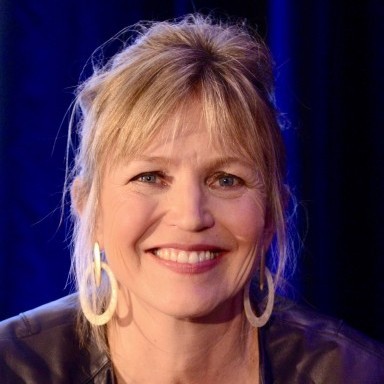Sustainability Panel | Radhika Shah, Emily Gordon, Alice Chen Zhang
About This Video
WiDS Worldwide, Stanford Panel: Sustainability Panelists:
- Radhika Shah, CoPresident Stanford Angels & Entrepreneurs, Founding CoChair UN Joint SDG Fund Breakthrough Alliance
- Emily Gordon, Data Science Postdoctoral Fellow, Stanford University
- Alice Chen Zhang, Data Science Manager, Charging/Energy Services & Cycle Plan Analytics, Ford
Moderated by: Margot Gerritsen, Professor Emerita & WiDS Co-Founder, Stanford University
In This Video

CoPresident Stanford Angels & Entrepreneurs, Founding CoChair UN Joint SDG Fund Breakthrough Alliance
Talk Title: Digital Innovation & Data Science as Accelerants of the Sustainable Development Goals
Abstract: In this moment of unprecedented crises of climate change and growing inequality, a moment of twin transitions of Digital Innovation and Decarbonization, it is imperative that women, local grass-roots communities, indigenous peoples are front and center, not just beneficiaries but also leaders of the change happening in our world.
The Sustainable Development Goals offer us a global normative framework to collaboratively tackle the grand challenges of our times including alleviating poverty and hunger, quality education, health and livelihood for all, tackling gender and other inequalities, climate action and more. These 17 goals recognize the interconnectedness of social, environmental and economic challenges and the.
In this talk we will examine the role that inclusive digital innovation and data science can play in accelerating progress on these ambitious goals, and share examples of specific interventions accelerating the goals.
Finally, we will explore the still much needed Inclusive Systems Change as we attempt to achieve the SDGs by 2030 and their spirit of Leaving No One Behind. We will highlight a couple of unique initiatives – The United Nations Joint SDG Fund Breakthrough Alliance and The SDG Digital Transformation & Sustainability Solutions Lab – that enable cross-sectoral, public-private collaborations and bridge building across regions and nations; across the global north and the global south, bringing the power of digital innovation, markets and data science to advance these goals and drive us towards inclusive sustainable futures.
Bio: Radhika is a tech-impact investor, passionate about civic engagement, inclusive digital transformation and a just climate transition. She is Founding CoChair, United Nations Joint SDG Fund Breakthrough Alliance, Co-President, Stanford Angels & Entrepreneurs, Fellow/Founding Chair,Technology+Innovation Advisory Group, The Stanford Center for Human Rights & International Justice.
She is a staunch believer in role of policy to accelerate social change. She sits on the CEGA, U.C. Berkeley board. She was a member of CGD’s study group Technology-Comparative-Advantage-and-Development-Prospects. Influenced by Gandhian philosophy, Radhika cares deeply about sustainability, human dignity, women’s empowerment, racial-ethnic and socio-economic justice. She Co-Chair’s U.S.-India-Alliance-for-Women’s-Economic-Empowerment-STEM-Collaborative.
Radhika is a deep believer in the SDGs and an advisor to SDGPhilanthropyPlatform, Impact-Experience, IllumenCapital, Benetech, BHRRC and former Stanford Global Center for Gender Equality. She co-designed Stanford study and co-authored peer-reviewed-paper “Race influences professional investors’ financial judgments”, Proceedings, National Academy of Sciences.
She holds a Stanford CS Masters and a Berkeley MBA.

Data Science Postdoctoral Fellow, Stanford University
Talk Title: Toward a Deeper Understanding of Our Climate System Through Data Science
Abstract: Climate change is in a crisis phase, and understanding of the effects of this change is hampered by our relatively short record of satellite observations. Compounding this issue, greenhouse gas emissions, which are responsible for global warming, also affect internal processes in the system, contaminating our already limited observational record. To overcome these problems, scientists turn to climate models, which allow us to generate computer simulations of our Earth system under various scenarios of warming, and interrogate underlying mechanisms. These models are fundamental in helping understand our changing climate system and can generate large amounts of data. As such, data science plays a major role in understanding historical climate variability, and potential scenarios for future change. In my talk, I discuss how climate models provide both a fundamental understanding of our climate system and allow us to probe the potential consequences of climate change. I further discuss the growing role of machine learning in climate science, both in analyzing observational and model output, and for improving the models themselves.
Bio: Emily Gordon is a Stanford Data Science Postdoctoral Fellow with research interests at the intersection of climate variability and predictability, and novel data science methods. Her research is focused on developing machine learning approaches to understand the predictability of the near term impacts of climate change. This research involves investigating predictability across Earth system models and observations, and developing methods to best utilize the information available from troves of climate data. Prior to joining Stanford, Emily received her PhD from Colorado State University as a Fulbright scholar, and her BSc and MSc from the University of Otago in New Zealand.

Data Science Manager, Charging/Energy Services & Cycle Plan Analytics, Ford
Talk Title: Driving Sustainability at Ford: How Data Science enables the transition
Abstract: Ford Motor Company is committed to building a sustainable future for transportation. Our presentation will begin with a brief overview of Ford’s sustainability journey and the transition to electric vehicles. We aim to showcase the valuable contributions of data scientists in this transformative process by exploring two specific use cases. One case involved using statistical modeling to support product design enhancement, while the other focused on developing models to enhance the electric vehicle customer charging experiences. In both cases, we utilized connected vehicle data and automotive expertise to create analytical models that address business challenges. We will also discuss the obstacles we faced, such as missing data and real-world noise factors. Additionally, we will discuss the customizations of statistical and/or AI/ML models using domain knowledge and physics-based models. Finally, we will conclude by sharing some data-driven business insights and applications.
Bio: Dr. Alice Chen Zhang is a data science manager at Global Data Insights & Analytics, Ford, leading Charging/Energy Services & Cycle Plan Analytics. With a Ph.D. in Applied Mathematics, she has been with Ford since 2015, contributing to On-Road Big Data Analytics, Electric Vehicle Analytics, Sustainability, and Reductive Design. Currently, she leads product teams to deliver data analytics products and services enhancing the customers’ charging experience, supporting Ford’s energy services, and ensuring regulatory compliance through connected vehicle data. Dr. Zhang was honored as the technology Rising Star at the 2022 Women of Color STEM Conference and received the 2018 Henry Ford Technology Award (highest technical achievement award at Ford). Known as a people leader, she is dedicated to fostering an inclusive work environment where all employees feel valued and supported.

Co-Founder, WiDS Worldwide
Margot Gerritsen is a Professor at Stanford University and co-founder and co-director of WiDS Worldwide. Her expertise is in computational mathematics. She is particularly fond of computational fluid dynamics and linear algebra. Margot received her MS from TU Delft and her PhD from Stanford. Prior to her position at Stanford, she spent five years as a faculty member at the University of Auckland, New Zealand. Margot was born and raised in the Netherlands and left the flat lands in 1990 in search of hillier and sunnier places. She still has her Dutch accent. She currently lives in the Oregon mountains with her partner Paul.

